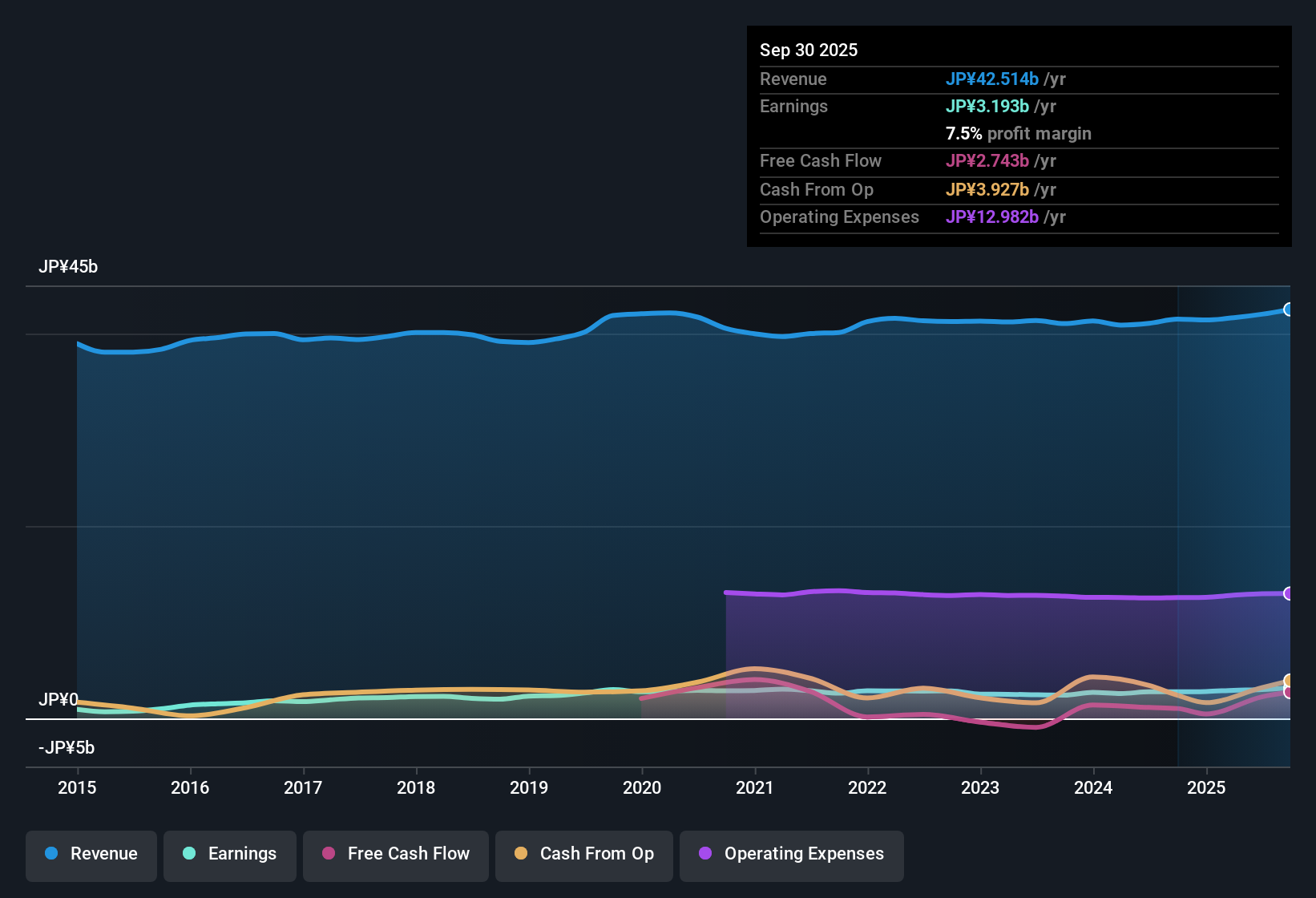- Japan
- /
- Consumer Durables
- /
- TSE:7989
There May Be Underlying Issues With The Quality Of Tachikawa's (TSE:7989) Earnings
Tachikawa Corporation (TSE:7989) announced strong profits, but the stock was stagnant. Our analysis suggests that this might be because shareholders have noticed some concerning underlying factors.

To understand the value of a company's earnings growth, it is imperative to consider any dilution of shareholders' interests. In fact, Tachikawa increased the number of shares on issue by 8.9% over the last twelve months by issuing new shares. That means its earnings are split among a greater number of shares. To celebrate net income while ignoring dilution is like rejoicing because you have a single slice of a larger pizza, but ignoring the fact that the pizza is now cut into many more slices. You can see a chart of Tachikawa's EPS by clicking here.
How Is Dilution Impacting Tachikawa's Earnings Per Share (EPS)?
Tachikawa has improved its profit over the last three years, with an annualized gain of 12% in that time. And in the last year the company managed to bump profit up by 15%. On the other hand, earnings per share are only up 6.4% in that time. So you can see that the dilution has had a bit of an impact on shareholders.
Changes in the share price do tend to reflect changes in earnings per share, in the long run. So it will certainly be a positive for shareholders if Tachikawa can grow EPS persistently. But on the other hand, we'd be far less excited to learn profit (but not EPS) was improving. For that reason, you could say that EPS is more important that net income in the long run, assuming the goal is to assess whether a company's share price might grow.
Note: we always recommend investors check balance sheet strength. Click here to be taken to our balance sheet analysis of Tachikawa.
Our Take On Tachikawa's Profit Performance
Each Tachikawa share now gets a meaningfully smaller slice of its overall profit, due to dilution of existing shareholders. Because of this, we think that it may be that Tachikawa's statutory profits are better than its underlying earnings power. But at least holders can take some solace from the 8.6% per annum growth in EPS for the last three. Of course, we've only just scratched the surface when it comes to analysing its earnings; one could also consider margins, forecast growth, and return on investment, among other factors. So if you'd like to dive deeper into this stock, it's crucial to consider any risks it's facing. Every company has risks, and we've spotted 1 warning sign for Tachikawa you should know about.
Today we've zoomed in on a single data point to better understand the nature of Tachikawa's profit. But there are plenty of other ways to inform your opinion of a company. Some people consider a high return on equity to be a good sign of a quality business. So you may wish to see this free collection of companies boasting high return on equity, or this list of stocks with high insider ownership.
Valuation is complex, but we're here to simplify it.
Discover if Tachikawa might be undervalued or overvalued with our detailed analysis, featuring fair value estimates, potential risks, dividends, insider trades, and its financial condition.
Access Free AnalysisHave feedback on this article? Concerned about the content? Get in touch with us directly. Alternatively, email editorial-team (at) simplywallst.com.
This article by Simply Wall St is general in nature. We provide commentary based on historical data and analyst forecasts only using an unbiased methodology and our articles are not intended to be financial advice. It does not constitute a recommendation to buy or sell any stock, and does not take account of your objectives, or your financial situation. We aim to bring you long-term focused analysis driven by fundamental data. Note that our analysis may not factor in the latest price-sensitive company announcements or qualitative material. Simply Wall St has no position in any stocks mentioned.
About TSE:7989
Tachikawa
Designs, manufactures, markets, sells, and installs various window covering products, centered around blinds and room partitions primarily in Japan.
Flawless balance sheet with solid track record and pays a dividend.
Market Insights
Community Narratives




